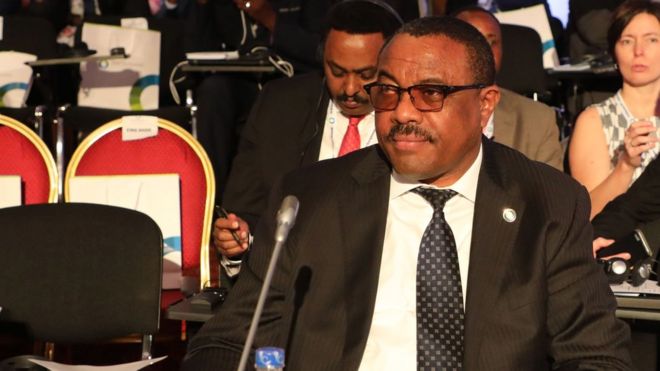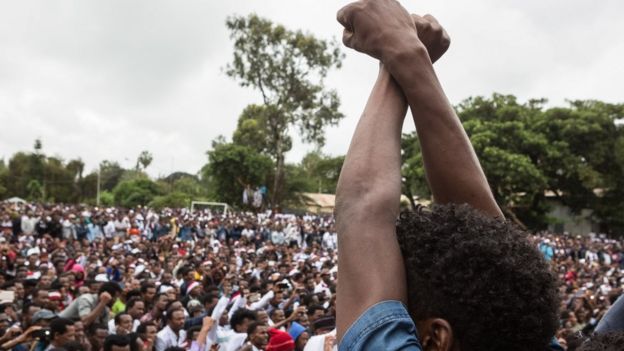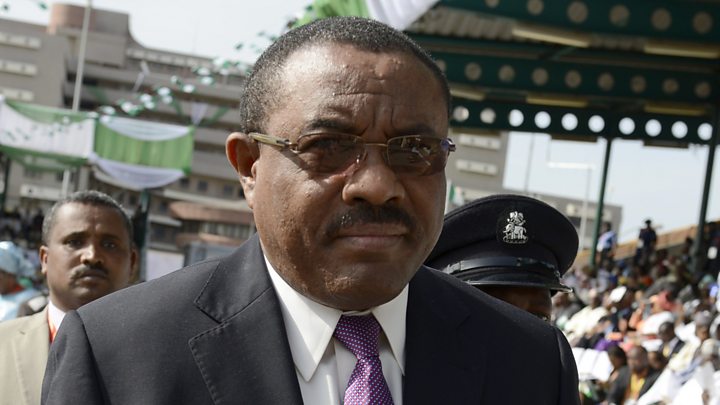'Sudan in Turkish hands'
Military reinforcements
Ethiopian Dam project
Eritrean-Ethiopian tensions
for months but came to the fore when Turkish President Recep Tayyip Erdogan visited Sudan last month.
The visit, hailed as historic, was the first by a Turkish head of state since 1956 when Sudan gained independence.Sudan's official state news agency said the two countries agreed to set up a strategic planning group to discuss international affairs, and that theyintended to conclude amilitary deal.Among more than a dozen agreements signed by Erdogan and Sudanese President
Omar al-Bashir was a deal to temporarily hand over
Ankara and Khartoum said Turkey would rebuild the ruined,
sparsely populated Ottoman
island to increase tourism and create a transit point for pilgrims
crossing the Red Sea to Islam's holiest city of Mecca.
Egyptian and Saudi media have harshly criticised the agreement, and
alleged Turkey would build a military base on Suakin.
Turkey and Egypt, an ally of Saudi Arabia, have had frosty
relations for some time.
Ankara strongly condemned Egypt's military coup in 2013, which
overthrew the first
Brotherhood.
Saudi newspaper al-Okaz ran a headline that read: "Khartoum hands
over Suakin to Ankara … Sudan in Turkish hands."
"Turkey's greed on the African continent seems to have no limits,
" the report noted,
referring to Turkey's recent move to set up its biggest overseas
The Sudanese embassy in Saudi Arabia responded by saying that
"Suakin belongs to Sudan,
no one else", and promising that the deal with Ankara would not
harm the security of Arab countries.
The ripples, however, were immediately felt across the African
continent.
In what may have been a response to fears that Turkey was
expanding its influence in the
region, Egypt sent hundreds of its troops to a UAE base in Eritrea,
Khartoum responded by recalling its ambassador to Cairo, hours
after the
head of the
Sudanese Border Technical Committee, Abdullah al-Sadiq, accused
Egypt of trying to "drag Sudan into a direct [military] confrontation".
Days later, Sudan shut its border with Eritrea and deployed
thousands of troops there.
The Suakin island deal with Turkey has merely
heightened an already tense political
situation in the region. For months, Sudan and Egypt
have exchangedaccusations,
with Cairo claiming that Khartoum had been supporting
Muslim Brotherhood members
and Khartoum alleging Cairo was supporting Sudanese
nations is the Grand Ethiopian Renaissance
Dam (GERD) project, the largest hydroelectric dam project
in Africa.Unhappy with Khartoum, Egypt last week reportedly
from contentious negotiations over the future of the dam.
Egypt has been at odds with its neighbours over the $4.8bn
megaproject, with Cairo
fearing that its position downstream may affect its access to
water from theNile River basin, which will feed the dam.
The Egyptian proposal, sent by Egyptian President
Ethiopian Prime Minister Hailemariam Desalegn, suggested
that talks proceed with Ethiopia alone,
according to the Addis Fortune newspaper. Egypt was
quick to deny the claims.
On Monday, Hailemariam received Sudanese army
chief Emad al-Din M Adawi and
discussed how to further strengthen their "strategic partnership".
Adawi said the two neighbours would continue in their
collaborative efforts to contain problems in the region.
The deployment of Egyptian troops to Eritrea has sent longtime foe Ethiopia
into a frenzy.
Aware of the poor relations between Egypt and Ethiopia over Nile water use,
Eritrea eagerly welcomed the Egyptian troops.
Ethiopia, which has the third-largest army on the continent, responded by
sending more
troops to the border with its regional rival, Eritrea. Asmara and Addis Ababa have
had two bloody wars over border disputes.
Ethiopia is also uneasy that the United Arab Emirates, which has cosy relations
with Cairo,
has been stepping up its presence in the region. It recently acquired military
and naval basesin countries that
have borders with Ethiopia, Somalia to the east and Eritrea to the north,
as well as Yemen. This has led
Ethiopia to steam ahead with construction of the dam, saying that more than
60 percent has
already been completed.
"Construction has never stopped and will never stop until the project is completed.
We are
not concerned with what Egypt thinks. Ethiopia is committed to benefit
from its water resources without causing
harm to anyone," Seleshi Bekele, Ethiopia's minister for irrigation, water and
As Egypt, Turkey and the UAE make efforts to expand their influence and
secure allies in
the region, it is unclear whether relations between African states will
continue to sour. Further twists and
turns could be ahead as African heads of state prepare to meet in Addis
Ababa later this month for the African Union summit.




